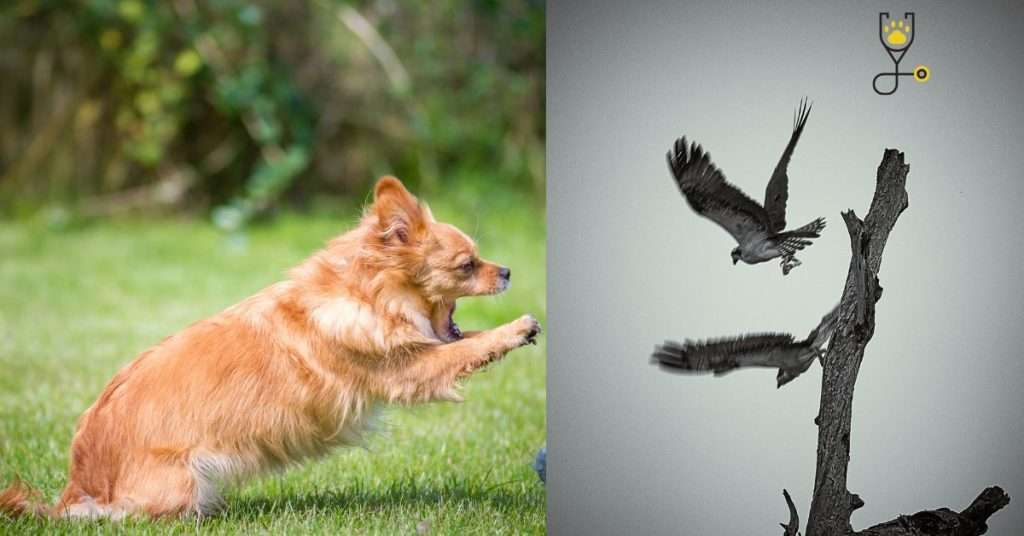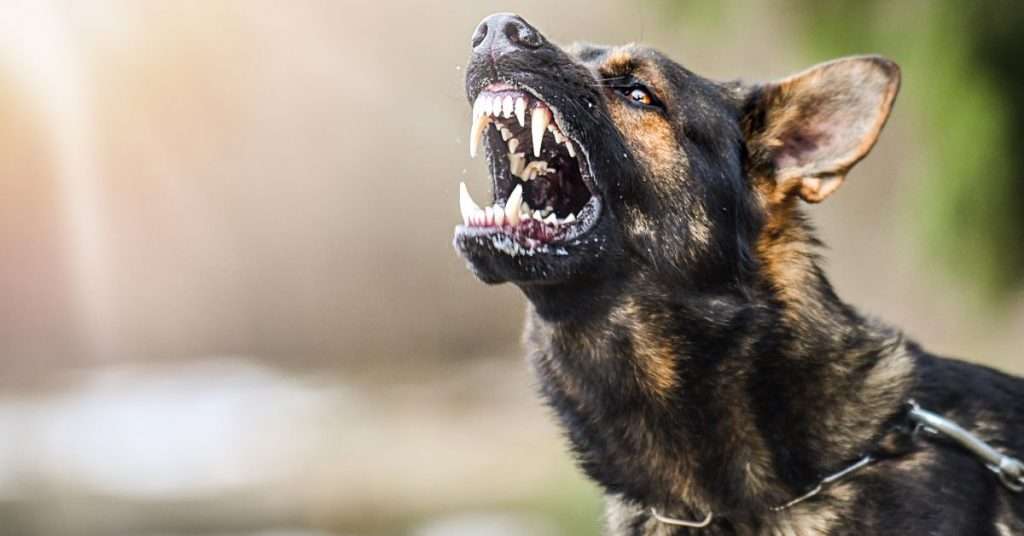If you’re like most pet bird owners, you probably think of your feathered friend as a member of the family. So it can be alarming when your dog suddenly attacks your pet bird. But don’t worry – there are usually several reasons why this might happen. In this post, we’ll take a look at some of the most common causes of canine-avian aggression, and offer some tips for preventing it.

Why Would a Dog Attack a Pet Bird?
If your dog attacked your pet bird, you are likely feeling terrible. Even if your pet bird turns out to be fine, the experience was certainly scary and worrisome. The first thing you should do is to assess the situation and make sure that your pet bird is indeed okay. If there are any signs of injury, it is important to take your bird to the vet as soon as possible.
Once you have determined that your pet bird is safe, you will need to take steps to prevent future attacks. If your dog does not have a history of aggression, it is possible that the attack was simply a result of curiosity or playfulness.
In this case, you may be able to prevent future attacks by keeping your dog and pet bird separate. However, if your dog does have a history of aggression, you will need to take more serious precautions to keep your pet bird safe. This may include keeping your bird in a cage at all times or re-homing your dog.
Regardless of the course of action you take, it is important to consult with a veterinarian or animal behaviorist to ensure that your pet bird remains safe and healthy.
Learn More: Are dry fruits good for dogs?
A Matter of Predatory Drive
While most dogs have been domesticated and no longer hunt for food, some retain strong predatory instincts. In a great majority of cases, dogs attack birds out of this predatory drive. This can pose a serious threat to local bird populations, as well as pose a danger to people who encounter these dogs.
There are a few things that can be done to help reduce the chances of a dog attacking a bird.
- First, it is important to spay or neuter all dogs, as this can help to reduce their aggressive tendencies.
- Secondly, early socialization is crucial in helping dogs learn to accept other animals.
- Finally, owners should be vigilant in keeping their dogs under control and not allow them to roam free in areas where there is a risk of them coming into contact with birds.
By taking these steps, we can help to keep our feathered friends safe from harm.

What Is Predatory Drive?
The predatory drive is the instinctual urge to hunt and kill prey. While most dogs have been domesticated and no longer act on this instinct, some retain a strong predatory drive. This can pose a serious threat to local bird populations, as well as pose a danger to people who encounter these dogs.
Read More: Homemade Peanut Butter Dog Treats (With Honey)
Early Predatory Signs
Puppies typically begin to show predatory behaviors between the ages of 8 and 16 weeks.
These behaviors can include stalking, chasing, and pouncing. While these behaviors are often seen as playful, they can quickly escalate into more serious aggression.
As puppies grow older, they may begin to show more serious predatory behaviors, such as killing smaller animals. If not properly managed and controlled, this behavior can pose a serious threat to local bird populations, as well as other small animals.
Evaluating Triggering Events
Predatory behaviors are often triggered by certain events, such as the sight or sound of a bird. In some cases, the dog may have had a negative experience with a bird, such as being attacked by one.
Other triggering events can include the smell of a bird or the presence of other animals in the area.
It is important to be aware of these triggers so that you can take steps to prevent your dog from becoming aggressive.
Other Possible Evoking Events
Here are some of the few potential reasons behind it. Let’s take a look at each deeply.
Guarding Resources
Dogs are often protective of their food, toys, and other resources. This instinct can sometimes lead to aggression towards people or other animals who attempt to take these things away.
While this behavior is not always directed at birds, it can sometimes lead to aggression if the bird attempts to take something that the dog perceives as its own.
Solution:
To prevent this from happening, it is important to provide your dog with plenty of resources, such as food, water, and toys. You should also make sure that these items are kept in a safe place where the dog cannot access them.
In addition, you should never try to take something away from a dog without asking first. If the dog does not want to give up the item, it is best to leave it alone.
Learn More: Is Turmeric Good for My Dog?

Fear
Dogs who are afraid of birds may become aggressive in an attempt to protect themselves. This behavior is often seen in dogs who have had a negative encounter with a bird, such as being attacked by one.
Other dogs may become afraid of birds after seeing another dog being aggressive towards them.
Solution:
If your dog is afraid of birds, it is important to help them overcome their fear. This can be done by gradually exposing them to birds in a safe and controlled environment.
You should also avoid forcing your dog to interact with birds if they are not ready. This could make the problem worse and lead to further aggression.
Inbreeding
One of the most common causes of predatory behavior is inbreeding. This often happens when two closely related dogs are bred together, such as a father and daughter or brother and sister.
This type of breeding can lead to genetic defects that can cause predatory behaviors.
Solution:
If you are planning to breed your dog, it is important to make sure that they are not closely related to the other dog. This will help to prevent any genetic defects that could lead to predatory behavior.
You should also avoid breeding dogs who have already shown signs of aggression towards birds.
Get More Detailed About Dogs Here: The Ultimate Guide To Dogs Behavior
Diet
Another potential cause of predatory behavior is diet. Dogs who eat a diet that is high in protein may be more likely to exhibit these behaviors.
This is because protein helps to build muscle and increase energy levels. This can make dogs more likely to engage in predatory activities.
Solution:
If you are concerned about your dog’s diet, you should talk to your veterinarian about the best options. They can help you choose a food that is right for your dog and their specific needs.
You should also avoid feeding your dog table scraps, as this could cause them to become overweight.
Overstimulation
Dogs who are constantly overstimulated may begin to exhibit predatory behaviors. This is often seen in dogs who are left alone for long periods of time or who do not have enough exercise.
Dogs who are constantly bombarded with loud noises, such as music or television, may also become overstimulated.
Solution:
If you think that your dog is becoming overstimulated, it is important to provide them with more exercise and attention. You should also take steps to reduce the amount of noise and activity in your home.
You may also want to consider crate training your dog, as this can help them to feel more secure and relaxed.
Lack of Socialization
Dogs who lack socialization may be more likely to exhibit predatory behaviors. This is because they have not had the opportunity to interact with other animals and learn appropriate behaviors.
Dogs who are raised in isolation or who are not exposed to other animals are at a higher risk for developing these types of behaviors.
Solution:
It is important to socialize your dog from an early age. This can be done by taking them to the park, enrolling them in puppy classes, or having them meet new people and animals on a regular basis.
You should also avoid leaving your dog alone for long periods of time, as this can make the problem worse.